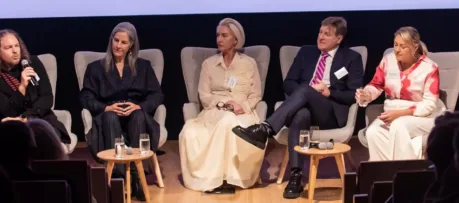With this weekend’s celebration of the 40th Anniversary of the Sydney Mardi Gras it is an opportune time to reflect on the vast diversity of the modern Australian family and our family law system.
With Australia having one of the most ethnically diverse populations in the world, the task of defining what a “family” is, is now complex and forms the basis for continuing debate in our society.
In the melting pot that is our modern Australian family, there is one inalienable thread in our social fabric that ties us all together, the Family Law Act.
The traditional nuclear family has changed and we now have blended and rainbow families that permeate our society. In 2010, the Honourable Justice Dessau (retired) observed that:
“This Court deals with a full spectrum of families: parents who have lived together as a unit with children for many years, parents who have met only briefly but through happenstance have parented a child together, heterosexual parents, homosexual parents, parents who have changed gender, parents from a wide range of cultures, and for example, in some medical procedure and other cases, parents who are firmly united in what they seek from the Court. It is always the particular child and his or her particular needs that must be at the center of a decision.” 1
Our family law system in Australia deals not only with parenting disputes but is also tasked with determining child support disputes, spousal maintenance matters, and property disagreements according to intricate equitable and legal doctrines which have developed and evolved over many years.
The evolution of family law in Australia has seen our contemporary body of law become one of the most theoretically inclusive and modernised bodies of law in the world. In 2014, members of the Japanese Federation of Bar Associations graced Australia with their presence while undertaking research into our 2012 Family Violence Reforms to assist them in making representations to the Japanese Government for reforms to its judicial system.
This path to contemporary modernity started over 40 years ago, with the most radical and bold reforms to family law that Australia has ever seen. The Family Court of Australia was established and fault based divorce abolished (a practice still existent in other nations, including the United Kingdom).
In more recent times, there has been further federal reforms. In 2008, the Same Sex Relationships (Equal Treatment in Commonwealth Laws – General Law Reform) Act, and the Same Sex Relationships (Equal Treatment in Commonwealth Laws – Superannuation) Act 2008 were passed by the Parliament. These two pieces of legislation saw the amendment of 86 federal laws which began the process of securing equal rights for same sex couples and their families in a wide range of areas including taxation, superannuation, health insurance, aged care, child support, immigration and social security.
Some 9 years later, in December 2017, Australia said “Yes” to amending the definition of marriage to include same-sex couples. Legislative reform from the Federal Parliament swiftly followed this affirmation by our society to the need of change and progression.
In that same month (December 2017), five members of the Full Court of the Family Court in “Re Kelvin” reconsidered the law in the area of “Childhood Gender Identity Disorder”. In Australia, a child can now start irreversible hormone treatment to change their sex with only the consent of his or her parents and the medical profession/medical expert. The Court no longer needs to be involved if everyone consents. This was heralded as a “historic judgement” by the Family Law Section of the Law Council of Australia.
With the family law system’s inclusive approach, the Courts are currently under resourced, and consequently there are considerable delays.
The call for reform to the family law system to increase access to justice for all and to reduce delays has been heard by the Parliament once again. Justice delayed is, after all, justice denied. The most comprehensive review of the family law system since 1976 has now commenced. On 9 May 2017, the Federal Government announced its intention to direct the Australian Law Reform Commission to oversee a comprehensive review of the family law system. The Review will be conducted by Melbourne Law School Professor Helen Rhoades, who is due to report back in March, 2019.
At Watts McCray Lawyers, our team of family law experts will keenly observe the progress of the Review and will be sure to revert back to the community on developments that are made to the family law system. As long as our large modern Australian family continues to evolve and change, we trust that our family law system will be able to continue to respond to these changes.
1. Wilson and Anor & Roberts and Anor (No. 2) [2010] FamCA 734, at 330 per Dessau J




